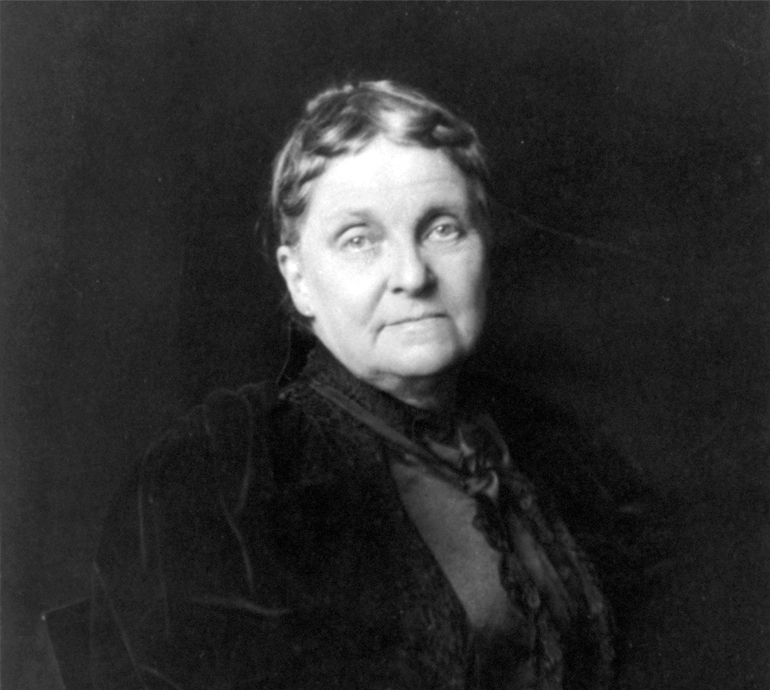The Journey Of Finding Satisfaction In Life
It starts from making sense of tests in life and realising that different isn't always good.
Hetty Green was the richest woman in America
It was the 1900s, and despite living in a male-dominant age, she was a centimillionaire — seen as a peer to tycoons like JP Morgan, Andrew Carnegie, and John Rockefeller.
Just looking at the numbers, many would consider her a great success.
Alas, if you've heard of Hetty before, you probably know her for something else.
The Guinness World Book of Records calls her the 'World's Greatest Miser'. Legend has it she never turned on the heat, wore shabby old underwear, and when her son Ned broke his leg, she sent him to a free clinic for the poor. Poor Ned eventually had to have his leg amputated.
Hetty Green had F.U. money, but I imagine she was not very happy.
Last month, as I was writing a post about early retirement, I realised I'm currently at this weird stage in my life: feeling satisfied
It's weird because as far as I can remember, I've always been in a different state: feeling like an underdog, wanting to prove myself.
"Satisfaction" here doesn't mean day-to-day happiness, which goes up and down for everyone. Like how I'm currently f*****g annoyed there seem to be double standards: one set of laws for politicians and their families, and another set for the rest of us. But if you zoomed out to 30,000 feet and asked me overall, am I satisfied with my life, would I say yes?
I would, and this is what I've learned getting here.
1. Making sense of tests
Back when I was growing up, school was all about scoring in exams.
And so, my behaviour was primed towards getting the highest marks, instead of learning. In university, I took it one step further: how do I get the best grades with the least effort possible (+ no cheating)? I ran cost-benefit analyses in my head: I needed time for computer games, basketball, and chasing girls — but I also wanted to score.
Metrics-wise I was successful. I graduated with first-class honours while having lots of fun. But today, there's much of my education which I can't remember. I aimed to ace the exams and I did — but did I really learn anything?
For most of a young person's life, we evaluate "performance" through standardised testing. It's as if we program their minds to believe success is all about scoring high marks. When we're kids that's written exams. But when we grow up, maybe that's why we try to score in the tests of money, cars, and houses.
Additionally, in a paper like FEM1013: Mathematics 1 it's possible to score full marks. 100%. But there's no limit to the amount of money you can make or magazine covers you can appear on. If you judge your life by those metrics, how do you know what's enough?
So here's the first thing I realised about finding life satisfaction: it comes not from scoring well in every test. It's realising that apart from a certain baseline (e.g. food, health, relationships), every other test is really optional.
2. Comparision, the thief of joy
The second thing I've learned about finding satisfaction is it's the polar opposite of jealousy, and its seductive cousin: comparison.
Everyone knows jealousy is destructive, but that desire to compare yourself to your boyfriend's hot colleague? A little harder to avoid.
And so we compare ourselves with others, even our closest friends: who makes the most money, who's got the most followers, who's got the most powerful job title? Even noble pursuits can have a dark side: "Oh, I've given up the materialistic world of money and things — see how religious I am? (If I can't beat you in this world, I'll beat you in the next.)"
The thing is, as someone ambitious and competitive — you'll always have that desire. So on one hand, we know comparisons make us miserable (even if you win a lot, there's always someone better), while on the other hand, you sometimes really can't help it.
What I've learned is to work with those feelings you have. Don't deny them or shut them away. It's okay to want to win. It's helped lead to the success you already have today. But how do you manage the dark side of competitiveness? How do you deal with being an insecure overachiever?
By being selfish: live more for your own approval, instead of other people's.
3. Of internal and external motivation
External approval: Jane's latest Instagram pic has 150 likes. Mine only has 98. What a TERRIBLE day!
Internal approval: I'm happy with how I look today. #blessed.
See the difference? It's hard, because of the two things we've already covered: our obsession with external scorecards, and our desire to compare.
Internal motivation is the superpower that helps you overcome these. You don't have to score your life by anyone else's expectations. Choose your own.
The high achiever's immediate objection: "Of course it's easy to be satisfied when you can set your own (low) expectations. But I want to be happy AND admired by everyone else."
My response: Live by your own standards. You'll be happy and people (at least wise ones) will still respect you. Besides, we overestimate the importance of other people's views. At the end of your life, apart from your family and some close friends — it won't matter.
I was already in my 30s before I realised this. Having spent most of my 20s trying to win the status games of money and power. It was a huge burden lifted off my shoulders.
Some people call it "accepting yourself" or "being comfortable in your own skin."
Whatever you call it, it's freedom.
4. Different isn't always good
Freedom is the ability to choose your own path. It doesn't mean you have to choose a different path.
Reflecting on my own journey, I always felt the urge to be different. Maybe it's because growing up in a strict environment created an inner rebel. I was also insecure. It's as if I wanted to prove something, that I could overcome the "normal" rules of society.
And so I explored unconventional paths — in career (making multiple career pivots) and relationships (not settling down early). But I've realised there's no value in being different for the sake of being different. There's a reason why some things are the way they are.
Some fundamental truths, which I doubt will ever change:
- Financial security is important, but beyond a certain income, not gonna make much difference to your life satisfaction.
- Work that's a nice blend of what you're good at, what you like, and is helpful to society is meaningful.
- Counting your blessings and practising gratitude will bless your life.
- Having good relationships with family and friends is critical. A happy life is a life filled with love.
If I could meet my younger self, this is what I'd tell him: Explore all you want, but remember your time here is limited. Look for fundamental truths. When you realise them for yourself, you'll know what to do.
5. Balancing growth is satisfaction
The older I get, the more I find myself saying this: "Wisdom is finding a balance between the extremes."
What extremes? If you're easily satisfied, you might never have growth in your life. But if your expectations are so high that nothing is ever good enough, isn't that a very painful way to live?
Please, can I invite you to be kinder to yourself?
Take two steps back towards the other side. A little bit of stress is good for you — it leads to growth. But too much, and your health starts to suffer.
A few years back, I was trying to stuff my schedule with as many meaningful things as possible. I would get through a 45-hour workweek, try to spend >20 hours on my blog, socialise often with friends and family, plus get physically involved in charity work. I wasn't getting enough sleep and burning out. From the outside, I was chasing all the right things. Inside, I was sick.
Today, I've learned a balanced life is more sustainable (and fun!). The recent lockdown has reminded me to consider what's really important. If your family is in good health, if you've got good friends, work where you can contribute and learn, and some time and money for hobbies — isn't that already pretty good?
Yes, I know — the world changes and the future is uncertain. There's no guarantee you'll always be comfortable. Maybe my skills get redundant and I lose my job one day. Maybe having kids will put me in financial stress. But my point is, I don't have to allow these to scare me into insecurity anymore.
Come what may, I have faith I'll be able to handle it.
I am enough.
Enjoy your journey
We started with a story about the greatest miser so we'll end with a story from the other side. Chuck Feeney was a billionaire not many people know about.
We say was not because he's dead, but because he gave away his USD9 billion fortune through charities. He's 86 today, with little money left and no property — living a quiet life with his wife in a rented apartment.
Chuck found the secret for himself; his own path to life satisfaction. In his own words:
"I cannot think of a more personally rewarding and appropriate use of wealth than to give while one is living — to personally devote oneself to meaningful efforts to improve the human condition."
Sounds pretty satisfied to me.
The co-founder of retail giant Duty Free Shoppers has finally given all his money away to charity. He has nothing left now—and he couldn't be happier.
Image via David Cantwell/ForbesThe full article originally appeared on mr-stingy.com.
This story is the personal opinion of the writer. You too can submit a story as a SAYS reader by emailing us at [email protected].



